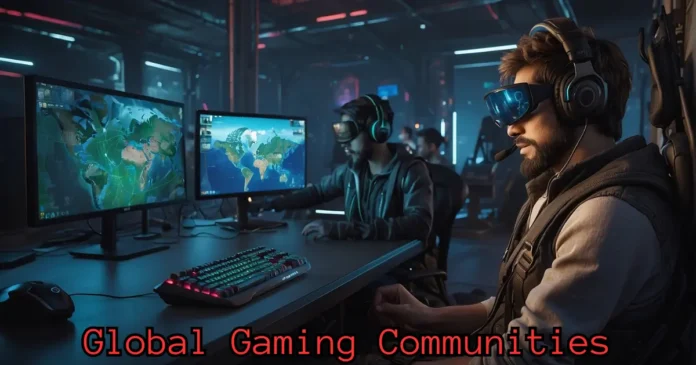Estimated reading time: 1 minute
Table of contents
In the vast landscape of gaming, communities act as the lifeblood that sustains the thriving ecosystem of virtual entertainment. These digital hubs serve as more than just avenues for gameplay; they are bustling hubs of social interaction, camaraderie, and shared experiences. From massive multiplayer online games (MMOs) to niche forums dedicated to specific titles, gaming communities form the backbone of the gaming industry, fostering connections that transcend geographical boundaries.
The Essence of Gaming Communities
Gaming communities are dynamic entities, constantly evolving to cater to the diverse needs and preferences of players. Whether it’s the adrenaline-fueled action of first-person shooters, the immersive narratives of role-playing games, or the strategic depth of real-time strategy titles, there’s a community for every gaming enthusiast. These communities provide a sense of belonging and camaraderie, where players can find like-minded individuals who share their passion for gaming.
Nurturing Social Interaction
At the heart of gaming communities lies the essence of social interaction. Through online platforms, players can engage in real-time conversations, strategize with teammates, or simply share anecdotes from their gaming adventures. Whether it’s coordinating raids in an MMO, discussing tactics in a competitive shooter, or swapping tips and tricks in a forum, these interactions foster a sense of community and belonging.
Bridging Physical and Virtual Spaces
While online platforms form the digital backbone of gaming communities, physical spaces also play a crucial role in fostering connections among gamers. Game shops, gaming cafes, and conventions serve as meeting grounds where enthusiasts can come together to socialize, participate in tournaments, or simply immerse themselves in the vibrant atmosphere of gaming culture. These physical spaces complement their online counterparts, offering opportunities for face-to-face interactions and forging lasting friendships.
The Role of Online Gaming Platforms
In recent years, online gaming platforms have emerged as central hubs for gaming communities, offering a plethora of features and functionalities to connect players worldwide. From integrated voice chat systems to robust matchmaking algorithms, these platforms provide the infrastructure needed to facilitate seamless multiplayer experiences.
Seamless Multiplayer Gameplay
One of the primary functions of online gaming platforms is to enable seamless multiplayer gameplay. Whether it’s teaming up with friends for a cooperative adventure or facing off against rivals in a competitive showdown, these platforms ensure that players can connect and engage with each other effortlessly. By providing dedicated servers, matchmaking systems, and communication tools, online gaming platforms lay the groundwork for immersive multiplayer experiences.
Community Building Tools
Beyond facilitating gameplay, online gaming platforms also offer a suite of community building tools designed to nurture connections among players. From customizable profiles and friend lists to group chat features and community forums, these tools empower players to form bonds, join communities, and engage in meaningful interactions. By fostering a sense of community ownership and participation, these platforms create environments where players can collaborate, create, and share content with like-minded individuals.
Examples of Thriving Gaming Communities
To illustrate the diverse and vibrant nature of gaming communities, let’s take a closer look at some notable examples:
Reddit:
Reddit boasts a myriad of gaming-related subreddits, catering to a wide range of interests and preferences. Whether it’s discussing the latest gaming news, sharing fan art, or seeking advice on gameplay strategies, Reddit provides a platform for gamers to engage in meaningful discussions and connect with fellow enthusiasts.
Discord:
Discord has become a go-to platform for gamers seeking to connect with friends, join gaming communities, and participate in voice chat during gameplay. With its user-friendly interface and robust features, Discord facilitates seamless communication and collaboration, making it an essential tool for gaming communities of all sizes.
Twitch:
Twitch has revolutionized the way gamers interact with each other, providing a platform for live streaming, esports events, and community engagement. From watching their favorite streamers to participating in chat discussions, Twitch offers a dynamic and interactive space for gamers to come together and share their passion for gaming.
Conclusion
Gaming communities serve as the backbone of the gaming industry, fostering connections, facilitating social interaction, and creating vibrant spaces for shared experiences. Whether online or offline, these communities play a crucial role in bringing gamers together, transcending geographical boundaries and forging lasting friendships. As the gaming landscape continues to evolve, gaming communities will remain at the forefront, shaping the future of interactive entertainment.
Also read:

Hello, I have a question
Hello!